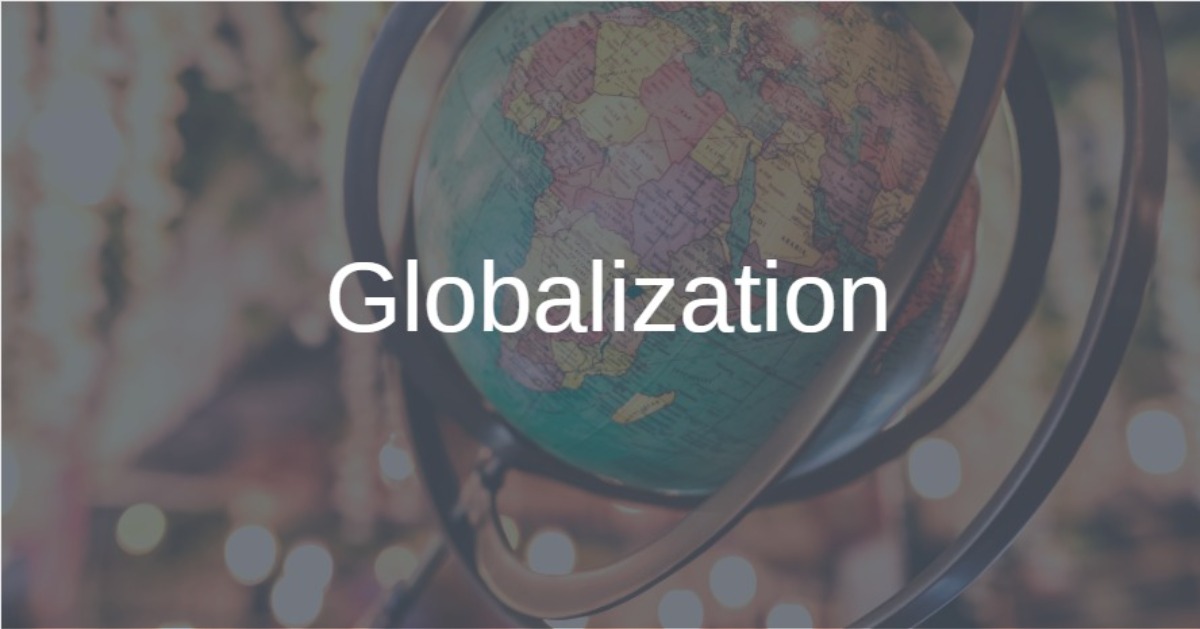Globalization comes from the globe and means the worldwide coming together of countries and nations. Thus, globalization is an international process driven by trade, investment, technology, and finance. This process has various effects on the environment, culture, the political system, economic development, prosperity, and physical well-being of people in societies around the earth.
Globalization can be defined as a process of connecting people economically, culturally, and institutionally. In the general sense, globalization refers to the increasing integration of economies around the world. This integration has played a role in the movement of goods, services, and capital across the border, in addition to the movement of people and knowledge across international borders.
A relevant example of globalization is the existence of multinational corporations in the world. The term multinational corporation simply refers to a business that conducts its operations in more than one country.
Definition of Globalization by Different Authors
IMF (International Monetary Fund) defined, “Globalization refers to the growing economic interdependence of countries worldwide through the increasing volume and variety of cross-border transactions in goods and services and of international capital flows, and also through the more rapid and widespread diffusion of technology.”
Jan Aart Scholte defines, “Globalization refers to processes whereby social relations acquire relatively distanceless and borderless qualities so that human lives are increasingly played out in the world as a single place.”
According to Richard Langhorne, “Globalization is the latest stage in a long accumulation of technological advance which has given human beings the ability to conduct their affairs across the world without reference to nationality, government authority, time of day or physical environment.”
According to the World Health Organization, “The increased interconnectedness and interdependence of peoples and countries. It is generally understood to include two interrelated elements: the opening of international borders to increasingly fast flows of goods, services, finance, people, and ideas; and the changes in institutions and policies at national and international levels that facilitate or promote such flows.”
Immanuel Wallerstein defines, “globalization represents the triumph of a capitalist world economy tied together by a global division of labor.”
Eduardo Aninat defines, “Globalization can be defined as the increasing interaction among and integration of diverse human societies in all important dimensions of their activities — economic, social, political, cultural, and religious.”
Definition of Globalization by Different Authors
According to Anthony Giddens, “Globalization means that we all increasingly live in a world where individuals, groups and nations are interdependent.”
Roland Robertson defined Globalization as “Globalization as a concept that refers both to the compression of the world and the intensification of consciousness of the world as a whole.”
According to UNESCO, “Globalization can be defined as a set of economic, social, technological, political and cultural structures and processes arising from the changing character of the production, consumption, and trade of goods and assets that comprise the base of the international political economy.”
Martin Khor defined globalization, “Globalization is what we in the Third World have for several centuries called colonization.”
According to sociologists Martin Albro and Elizabeth King, “globalization is the process by which the people of the world are integrated into a single world society.”
Advantages of globalization:
- Foreign investment in poor countries increases productivity.
- Globalization has led to the expansion of the global product market.
- Education, knowledge, and science are exchanged between different countries.
- Maintaining full competition in the free market economy protects consumer interests.
- As import-export is free, there is an opportunity for any product to enter the world market.
- Every country in the world has the opportunity to come closer to each other. This makes it easier to transfer technology between them.
Read More:
Definition of Total Quality Management by Different Author
Definition of Business by Different Authors

Leave a Reply